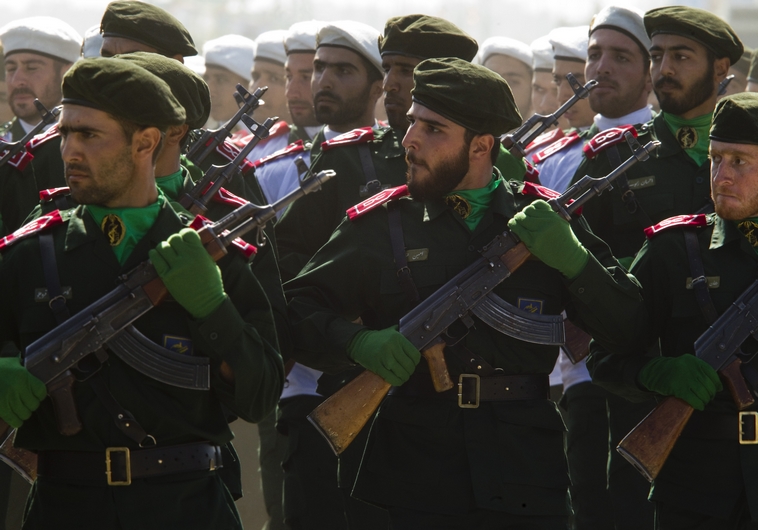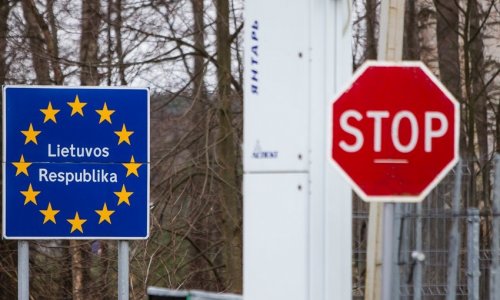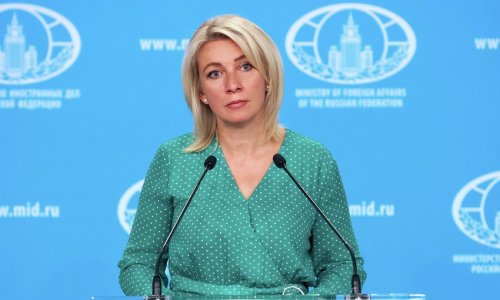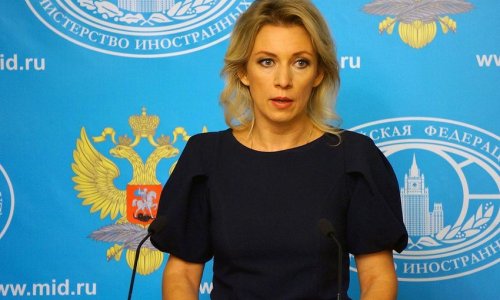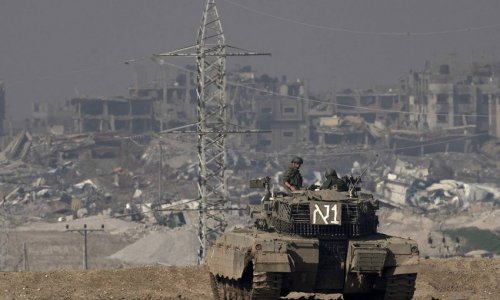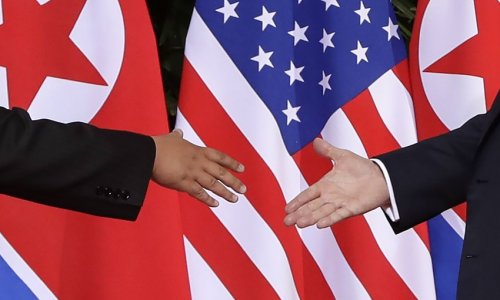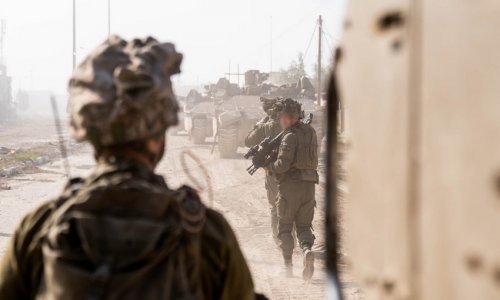Thousands of rifle-wielding troops parade across the plaza in lockstep to songs played by a brass band marching in formation.
Soldiers salute generals from the open hatches of tanks -- and, in one case, from what appears to be a manned torpedo -- as an arsenal of military hardware is whisked around the square on the back of giant flatbed trucks.
It's all part of a massive show of force as Iran kicks off its Sacred Defense Week under the watchful eye of President Hassan Rouhani.
Sacred Defense Week commemorates the beginning of the Iran-Iraq War in 1980. The war -- known as the "Sacred Defense" in Iran -- began when Iraq, led by Saddam Hussein, invaded Iran and used chemical weapons against its forces. Hundreds of thousands died on both sides during the eight-year conflict.
Overseeing the proceedings on Wednesday from a stage on the outskirts of Tehran, Rouhani praised the army for its efforts in a more recent war -- the fight against ISIS, which has seized control of large swathes of Syria and Iraq in the past year and a half.
Some of Iran's top commanders we spoke to laughed off any notion of cooperating with the U.S. in the battle against the extremist group.
Many of the country's military and political leaders accuse the United States of being responsible for ISIS' rise. They also believe that the American-led air campaign to root out ISIS is deeply ineffective.
"You must be dreaming," Maj. Gen. Hassan Firouzabadi, the military's chief of staff, says. "The Americans are the ones who created ISIS. American officials hypocritically play two roles. They lie in politics and they lie in security."
Many Iranian moderates hope that the nuclear deal agreed between their government and world powers will herald a new era of cooperation between their country and the West.
But distrust of the United States -- long derided as the "Great Satan" in Iran -- runs deep here on the outskirts of the capital.
"The Americans have a totally different nature than us," says Adm. Ali Fadavi, a top Iranian Revolutionary Guard commander. "And these differences will never allow us to cooperate with each other."
"Even if we have common interests, the ones who are right cannot cooperate with the ones who are wrong."
Rouhani has insisted that the military will become even stronger as a result of the nuclear agreement. But some top commanders have been highly critical of his talks with the West.
This year's Sacred Defense Week commemoration is especially important. Iran's military continues to face heavy sanctions that have prevented the country from acquiring the sophisticated equipment it needs to upgrade its capabilities.
The generals wanted those restrictions lifted as part of the nuclear deal, but some of the sanctions will stay in place, at least for several more years.
The commander of the Basij militia tells me he's generally wary of the agreement.
"I think the Americans have built tricks into the deal to deceive us," Mohammad Reza Naqdi says. "We have to be very careful. We can't fall into their trap."
The head of Iran's ground forces, on the other hand, is more positive.
It took some trust to sign the nuclear agreement in the first place," Brig. Gen. Ahmad Reza Pourdastan says. "But the trust-building needs to continue -- and the Americans should really change their threatening language."
As Iran celebrates the martyrs of past wars and the military's current strength, some of its leaders remain concerned about the future of the force -- and the dawning of a new phase in relations with the West won't change that anytime soon.
(CNN)
www.ann.az
Follow us !

